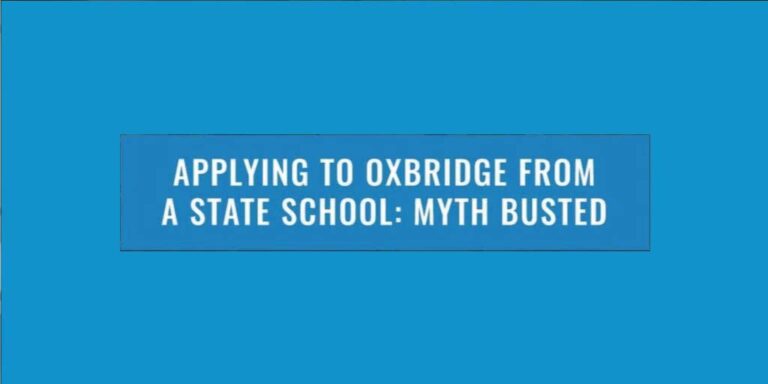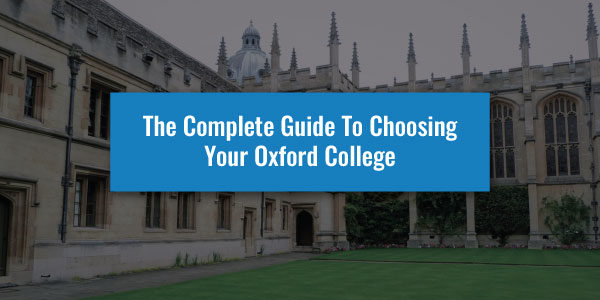Are you curious to know what it is like to study Land Economy at Cambridge?
Reading about a course only tells you so much, you do not get the reality that those who are studying it can provide.
Third-year student Tereza Zoumpalova talks us through what life as a Land Economy student at Cambridge is really like.
Life at Cambridge As A Land Economy Student
My name is Tereza and I am a final year student of Land Economy at Clare College, University of Cambridge. I come from the Czech Republic where I also did the IB before moving to the UK for university.
Land Economy is a unique subject combining Economics, Law & Environment. In the first year, you get foundations in economics (microeconomic & macroeconomic) as well as Law, maths and statistics, and an interdisciplinary subject combining topics from climate change through housing and real estate to inequality in cities.
This then gives you a taste of your options for the following two years in which you can also take options ranging from environmentally-focused ones to finance and real estate modules. This then gives you a lot of variety to what you study and also a wide range of options to choose from after graduating.
Land Economy is one of the many courses that are largely essay-heavy, which means that you would have around 12 contact hours per week.
The rest of your study time is therefore independent – and this means you might be spending a lot of time in the library or in your room, reading articles and writing essays.
The big benefit of this is that my schedule is very flexible and I can organise my time based on how it suits me, especially now after COVID with lectures being recorded and often delivered online.
Need help securing your place at Cambridge to study Land Economy?
We help you craft the perfect Personal Statement and teach you how to Interview effectively.
Discover our Cambridge Land Economy Premium Programme by clicking the button below to enrol and triple your chances of success.
7:45 AM - 8:30 AM: Getting Ready for the day
This example day is a Thursday – and strangely enough, that’s when the week beings in Cambridge. Our terms have an 8-week structure and begin on Thursdays and end on Wednesdays.
This year many of my lectures remained online, and whilst this is not ideal, at least it gives me more flexibility.
Thursdays are one of the few days with in-person lectures, so I get up earlier than usual to go to my 9 AM in person so that I am reminded of the fact that my degree still exists beyond Zoom, Microsoft Teams, Moodle and Google Scholar.
On days when I have no in-person teaching, I would usually wake up a bit later as I prefer to study in the evenings than in the mornings.
9 AM - 11 AM: First Land Economy Lecture
My first lectures are on Planning Policy & Practice, looking at how cities are designed, what regulation has to be considered, how the law interacts with the planning system, etc.
Last year I took a paper on “The Built Environment” which gave an interesting introduction to this topic, looking at the way that cities work, different debates in urbanism, how they can be more sustainable and so on.
When applying for Land Economy, many people might not expect that the “environment” in “Economics, Law, Environment” actually stands for both the built and the natural environment. This gives even more variety to the course.
Personally, I am really interested in sustainability, and while there were a few modules focused specifically on this (such as Environmental Law and Economics in second year or Land, Food and Ecosystem services in third year), it is interesting to see environmental considerations being included in other subjects, such as these urban-related ones.
11 AM - 1 pM: Second Land Economy Lecture
My lectures on development start right after the first two on planning, but luckily lectures actually begin at 05 and end at 55, which gives you a few minutes to make it to your next lecture.
At least in theory, in practice they often overrun, forcing you to run if you want to make the next one on time (or more realistically I just enjoy the walk as a nice break and miss the beginning, or speed walk and make it on time because the lecture halls are never too far anyways).
Our development paper looks at the causes of poverty, potential solutions, slums, crime, youth unemployment etc. and is one of the most popular modules.
1 PM - 2 pM: Lunchbreak
After my lectures, I meet my friends from college in Clare Old Court to have lunch in the buttery, which is our way of describing the food canteen, which other colleges also call servery, cafeteria, and many other confusing names.
The college’s central location is extremely useful because it’s never too far from lectures and libraries.
Going to the buttery gives me a nice space to meet with my friends, an excuse to not have to cook and a nice walk and break from studying, so I usually eat there for both lunch and dinner, meaning that the catering staff even knows me by name and remembers my dietary requirements.
2 PM - 4 pM: Study Session
After lunch, I usually head over to a library.
My favourite ones include the UL (University Library, located right behind Clare College Memorial Court), the Law Faculty library and the Law Reading Rooms in Clare as well as the FML (our college library). Personally I definitely work better in libraries and going there from the buttery also gives my day a bit more structure.
Take a look through our collection of Day In The Life articles for more insight into university life:
4 PM - 5:30 pM: Afternoon Activities
One thing that I discovered during my studies is that it’s not worth pushing through those unproductive times when you’re just staring into your computer and can’t focus because you won’t get much done anyways.
For me this usually happens at some point between 3 and 4 PM, which means that it’s time for a proper break.
If I’m in the library that day, I will go back to college and then either do a workout at the gym, go play squash with a friend or go for a walk if the weather is nice enough. I find that this helps keep me sane and have something to look forward to, and it’s nice to have it scheduled around a similar time.
5:30 PM - 6:30 pM: Land Economy Essay Readings
My late afternoon and evening plans differ a lot day to day and might include anything from studying until midnight through doing nothing and spending time with friends to going to some event.
On this particular day, I had a formal to go to in the evening but also an essay deadline the following day, so I spent a bit more time on essay readings between squash and the formal. With essay readings, it’s really important to prioritise your work and learn how you work best with planning essays.
Personally, I usually brainstorm what I can think of when I see the essay question, look through lecture notes to see if there is anything that I can use for a rough structure, and then I go through the recommended readings to understand the topic area better.
I usually prefer to go through a bit before writing things down so that I can identify what’s important, and after a bit of reading I can typically identify something to focus on or that I find interesting, which then helps me tailor my further readings accordingly.
7 PM - 9:30 pM: College Formal
As the name suggests, “formals” are formal dinners that colleges offer.
These are typically three-course meals served in the historical halls of colleges, and their prices can range from anywhere between 8 and 20+ pounds, with prices usually lower for students at the college.
My friends and I really enjoy going to these as they give you a nice excuse to take the evening off, dress up nicely and explore different colleges.
Strangely enough, coffee and tea is served at the end of a formal – so interpret that based on how you prefer to spend your evenings: either it gives you another boost to keep on studying, or wakes you up so that you can enjoy a night out.
9:30 PM - 11 pM: Drinks With Friends
After the formal we often head over to a bar for a drink with friends – and luckily Clare College has one of the nicest bars in Cambridge!
It’s called Clare Cellars and has a really unique atmosphere. Especially in first year, evening drinks would have often been followed by a night out clubbing. One of the stereotypes about Land Economy that definitely holds true is that it is a very social subject, especially because with only around 50-60 people doing it per year, everyone knows everyone.
Final Thoughts Of a Cambridge Land Economy Student
Land Economy gives you great variety in the things that you study and like other social science based subjects, it also gives your timetable quite a lot of flexibility, which is perfect if you like to organise your time according to your needs.
There is still a lot of work to do with an essay due for each supervision, but working all the time is never worth it, and I think that finding a balance in my life by getting my work done but also allowing myself to sleep in (aside from the rare 9AM lecture days), to take evenings off and spend them with friends, or to leave for a trip to London to take my mind off work.
These things have enabled me to enjoy my time at Cambridge and make use of not just the academic opportunities that it offers, but also the many societies, events and nice places to make use of, which create the small moments that make even these “typical” study days something to look forward to and remember.
Dreaming of Land Economy at Cambridge? Our expert tutors are on hand to help you secure your place.
Applying to Cambridge is immensely competitive and it is crucial that you give yourself the best chance of success. We help you craft the perfect Personal Statement and teach you how to Interview effectively – covering all areas of your Cambridge application.
Discover our Cambridge Land Economy Premium Programme.








